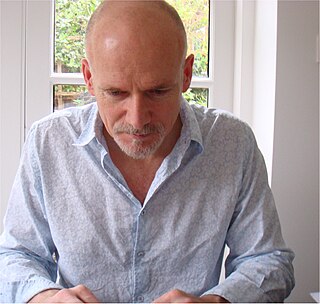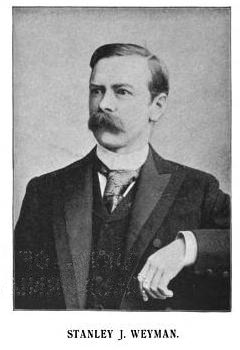Related Research Articles

The Bank of England is the central bank of the United Kingdom and the model on which most modern central banks have been based. Established in 1694 to act as the English Government's banker, and still one of the bankers for the Government of the United Kingdom, it is the world's eighth-oldest bank. It was privately owned by stockholders from its foundation in 1694 until it was nationalised in 1946 by the Attlee ministry.

A central bank, reserve bank, or monetary authority is an institution that manages the currency and monetary policy of a country or monetary union, and oversees their commercial banking system. In contrast to a commercial bank, a central bank possesses a monopoly on increasing the monetary base. Most central banks also have supervisory and regulatory powers to ensure the stability of member institutions, to prevent bank runs, and to discourage reckless or fraudulent behavior by member banks.

Sir Walter Scott, 1st Baronet, was a Scottish historian, novelist, poet, and playwright. Many of his works remain classics of European and Scottish literature, notably the novels Ivanhoe (1819), Rob Roy (1817), Waverley (1814), Old Mortality (1816), The Heart of Mid-Lothian (1818), and The Bride of Lammermoor (1819), along with the narrative poems Marmion (1808) and The Lady of the Lake (1810). He had a major impact on European and American literature.
Investment banking pertains to certain activities of a financial services company or a corporate division that consist in advisory-based financial transactions on behalf of individuals, corporations, and governments. Traditionally associated with corporate finance, such a bank might assist in raising financial capital by underwriting or acting as the client's agent in the issuance of debt or equity securities. An investment bank may also assist companies involved in mergers and acquisitions (M&A) and provide ancillary services such as market making, trading of derivatives and equity securities, FICC services or research. Most investment banks maintain prime brokerage and asset management departments in conjunction with their investment research businesses. As an industry, it is broken up into the Bulge Bracket, Middle Market, and boutique market.

Middlemarch, A Study of Provincial Life is a novel by the English author Mary Anne Evans, who wrote as George Eliot. It first appeared in eight installments (volumes) in 1871 and 1872. Set in Middlemarch, a fictional English Midland town, in 1829 to 1832, it follows distinct, intersecting stories with many characters. Issues include the status of women, the nature of marriage, idealism, self-interest, religion, hypocrisy, political reform, and education. Despite comic elements, Middlemarch uses realism to encompass historical events: the 1832 Reform Act, early railways, and the accession of King William IV. It looks at medicine of the time and reactionary views in a settled community facing unwelcome change. Eliot began writing the two pieces that formed the novel in 1869–1870 and completed it in 1871. Initial reviews were mixed, but it is now seen widely as her best work and one of the great English novels.
This article contains information about the literary events and publications of 1922. Under modern copyright law of the United States, all works published before January 1, 1923, with a proper copyright notice entered the public domain in the United States no later than 75 years from the date of the copyright. Hence books published in 1922 or earlier entered the public domain in the United States in 1998.

Philippa Gregory is an English historical novelist who has been publishing since 1987. The best known of her works is The Other Boleyn Girl (2001), which in 2002 won the Romantic Novel of the Year Award from the Romantic Novelists' Association and has been adapted into two films.

Jean Ingelow was an English poet and novelist, who gained sudden fame in 1863. She also wrote several stories for children.

Sebastian Charles Faulks is a British novelist, journalist and broadcaster. He is best known for his historical novels set in France – The Girl at the Lion d'Or, Birdsong and Charlotte Gray. He has also published novels with a contemporary setting, most recently A Week in December (2009) and Paris Echo, (2018) and a James Bond continuation novel, Devil May Care (2008), as well as a continuation of P.G. Wodehouse's Jeeves series, Jeeves and the Wedding Bells (2013). He was a team captain on BBC Radio 4 literary quiz The Write Stuff.

Jon Courtenay Grimwood is a Maltese born British science fiction and fantasy author. He also writes literary fiction as Jonathan Grimwood, and crime fiction and thrillers as Jack Grimwood.

Stanley John Weyman was an English writer of historical romance. His most popular works were written in 1890–1895 and set in late 16th and early 17th-century France. While very successful at the time, they are now largely forgotten.
James Anthony Coburn was an Australian television writer and producer, who spent much of his professional career living and working in the United Kingdom. He is best remembered for writing the first Doctor Who story, An Unearthly Child.

The Bank Charter Act 1844, sometimes referred to as the Peel Banking Act of 1844, was an Act of the Parliament of the United Kingdom, passed under the government of Robert Peel, which restricted the powers of British banks and gave exclusive note-issuing powers to the central Bank of England. It is one of the Bank of England Acts 1694 to 1892.
The Panic of 1825 was a stock market crash that started in the Bank of England, arising in part out of speculative investments in Latin America, including the imaginary country of Poyais. The crisis was felt most acutely in Britain, where it led to the closure of twelve banks. It was also manifest in the markets of Europe, Latin America and the United States. Nationwide gold and silver confiscation ensued and an infusion of gold reserves from the Banque de France saved the Bank of England from collapse. The panic has been called the first modern economic crisis not attributable to an external event, such as a war, and so the start of modern economic cycles. The Napoleonic Wars had been highly profitable for all sectors of the British financial system, and the expansionist monetary actions taken during transition from war to peace brought a surge of prosperity and speculative ventures. The stock market boom became a bubble and banks caught in the euphoria made risky loans.
The Panic of 1847 was a major British commercial and banking crisis, possibly triggered by the announcement in early March 1847 of government borrowing to pay for relief to combat the Great Famine in Ireland. It is also associated with the end of the 1840s railway industry boom and the failure of many non-bank lenders. The crisis was composed of two phases, one in April 1847 and one in October 1847 which was more serious and known as 'The Week of Terror'.

Sidney Kilner Levett-Yeats, an English novelist known professionally as S. Levett-Yeats, was the descendant of an old English trading family with connections to British India. S. Levett-Yeats became a soldier with the Indian Army and later joined the Indian Civil Service as a low-level bureaucrat. Inspired by the example of other ambitious Anglo-Indian writers like Rudyard Kipling, Levett-Yeats turned out a series of Victorian potboilers, often set in Europe, that earned him a place on the bestseller lists of the day.
Under the Red Robe is a historical novel by Stanley J. Weyman, first published in 1894. Often described as his best work, it was also the most commercially successful, going through 34 reprints, the last in 1962.
A novelist is an author or writer of novels, though often novelists also write in other genres of both fiction and non-fiction. Some novelists are professional novelists, thus make a living writing novels and other fiction, while others aspire to support themselves in this way or write as an avocation. Most novelists struggle to have their debut novel published, but once published they often continue to be published, although very few become literary celebrities, thus gaining prestige or a considerable income from their work.

Phillip Y. Kim is a South Korean-born American writer and editor in London. His first novel, an Asian financial thriller titled Nothing Gained, was published by Penguin Books in Australia and Asia in 2013. Since 2015, Kim has been co-owner and Managing Editor of the Asia Literary Review. In 2020, he acted as Project Manager and Senior Editor for an autobiography by dancer, actor and artist Sergei Polunin, FREE: A Life in Images and Words, published by teNeues Media.

The Birmingham Banking Company was a bank that operated in Birmingham, West Midlands from 1829 to 1889, and as The Metropolitan and Birmingham Bank from 1889 to 1892, the Metropolitan, Birmingham and South Wales Bank from 1892 to 1893, and the Metropolitan Bank (of England and Wales) from 1893 to 1914, when it was acquired by the Midland Bank.
References
- ↑ Forgotten books – full text: Retrieved 17 August 2017.
- ↑ Fantastic Fiction Retrieved 17 August 2017.
- ↑ Weyman, Stanley. "Ovington's Bank". Merlin Unwin Books.
- ↑ Google Books. Retrieved 17 August 2017.
- ↑ Ranald C. Michie: British Banking: Continuity and Change from 1694 to the Present (Oxford, UK: OUP, 2016), p. 144 Retrieved 17 August 2017.
- ↑ H. Orel: The Historical Novel from Scott to Sabatini. Changing Attitudes toward a Literary Genre, 1814–1920 (Basingstoke, UK: Macmillan Press, 1995), p. 113. Retrieved 17 August 2017.
- ↑ IMDb Retrieved 20 August 2017.